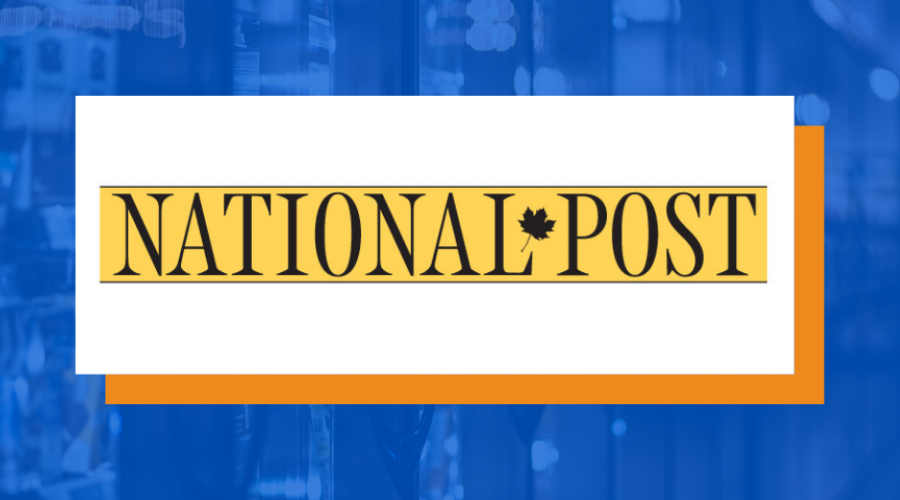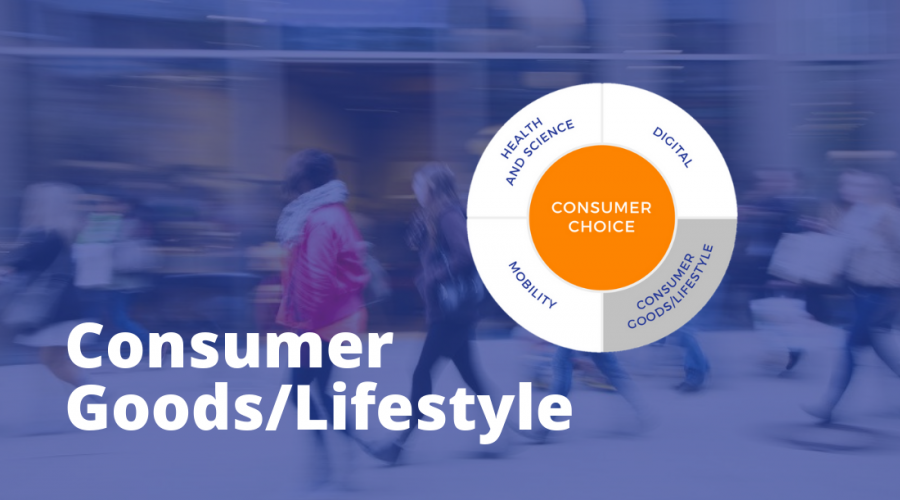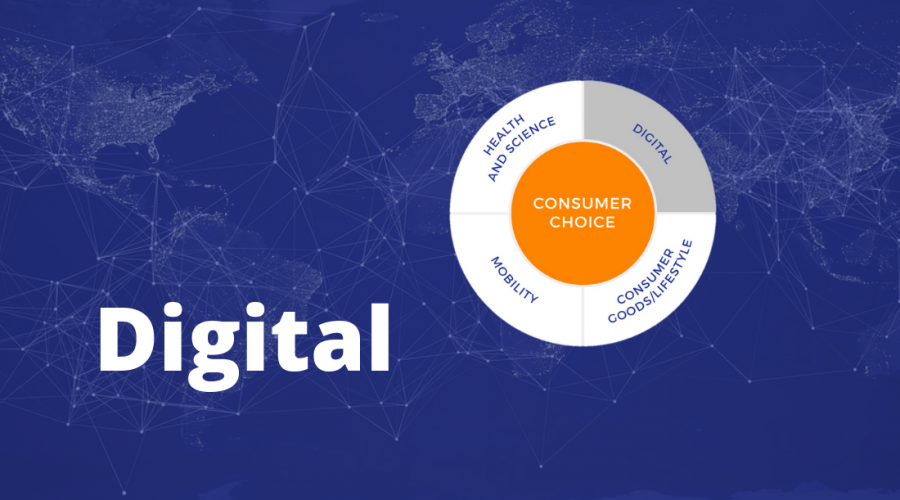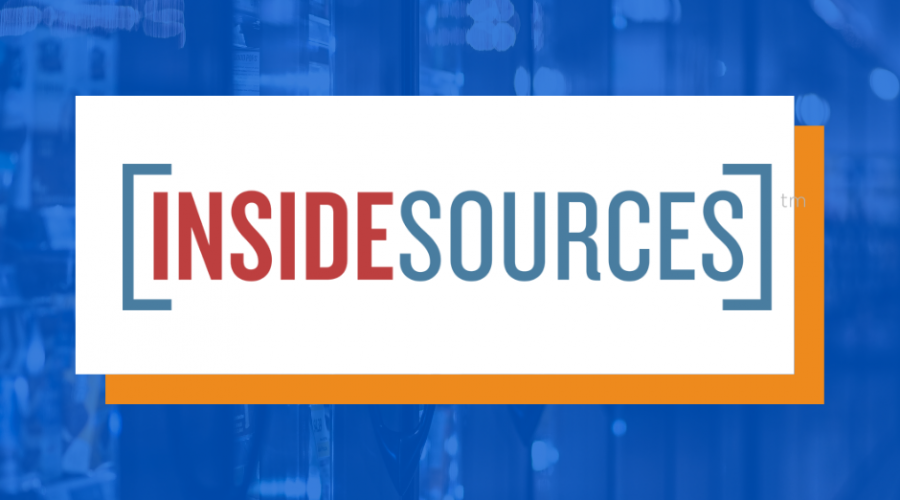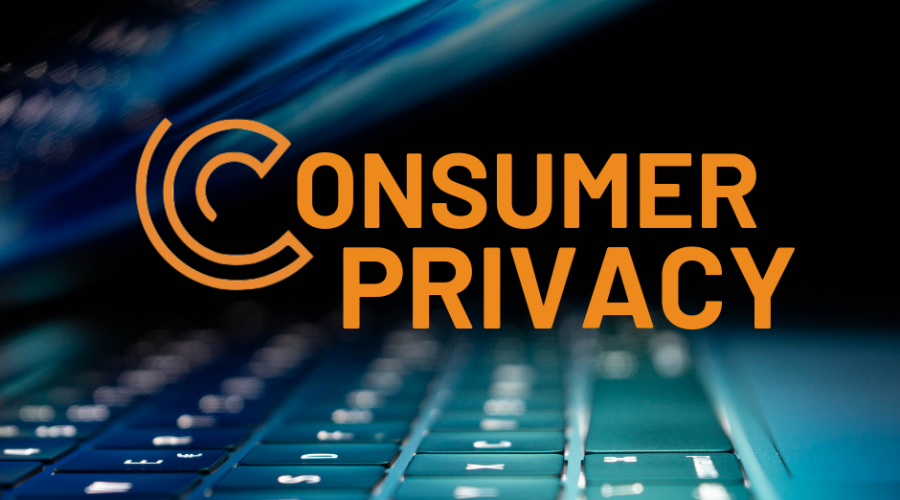- About Us
- Media
- Research
- Policy Areas
- Events
- Past Events
- Sweden is More Than Just IKEA
- The Path Forward: Liberal Democracies and Technology Policy
- Coping with uncertainty in a post-pandemic world
- FDA’s Menthol Melee: A CCC Session
- CANNABIS CONCLAVE BY CONSUMER CHOICE CENTER®
- Cannabis Conclave 2020
- Cannabis Conclave 2019
- Telecom and Media Innovation Summit
- Brand Freedom Day
- Media Roundtables: Does the WHO act
in the interest of Global Public Health?
- Past Events
- Donate

Search for: china
The Dow Dropped 98 Points Because Tariffs Might Finally Hit Home
Unlike the previous tranche of levies imposed since last year, the latest round will mostly target popular consumer products, including cellphones, laptops, apparel, and toys. “Trump’s announcement about additional tariffs on Chinese goods will hit American consumers the hardest,” David Clement, North American affairs manager of the Consumer Choice Center, said on Thursday after the announcement.
“Given how interconnected the two economies are, it is ultimately American consumers who are going to be footing the bill for these new tariffs. Legislators need to better understand that tariffs on foreign products end up being a new tax for domestic consumers. Simply put, tariffs are taxes,” Clement said.
Trudeau’s ‘plastic ban’ won’t help the environment. It could actually harm it instead
Opinion: Alternatives have a significantly higher total impact on the environment, while inflating costs for consumers
By David Clement
This week, Prime Minister Justin Trudeau announced his government will seek to ban many single-use plastics starting in 2021. Although the final list of banned items is still undetermined, it will likely include plastic bags, takeaway containers, cutlery and straws. To further justify the ban, Environment Minister Catherine McKenna cited images of marine wildlife being injured or killed as a result of plastic in our oceans.
It’s a hard-to-resist pitch. No one wants to contribute to marine deaths as a result of plastic, and most of us don’t like the idea of plastic items taking over 1,000 years to decompose in landfills. These concerns ultimately stem from worries about climate change, and the environmental problems that could arise as a result.
Unfortunately for the environmentally conscious among us, a ban on single-use plastics does almost nothing for the issue of plastics impacting ocean marine life, and does very little in terms of environmental impact. Canadians are not significant polluters when it comes to marine litter. Up to 95 per cent of all plastic found in the world’s oceans comes from just 10 source rivers, which are all in the developing world.
William Watson: After banning disposable plastics, Trudeau may be a disposable prime minister
Rapidly growing backlash to plastic has oil companies worried
Terence Corcoran: How green activists manipulated us into a pointless war on plastic
Canada on average, contributes less than 0.01 MT (millions of metric tonnes) of mismanaged plastic waste. In contrast, countries like Indonesia and the Philippines contribute 10.1 per cent and 5.9 per cent of the world’s mismanaged plastic, which is upwards of 300 times Canada’s contribution. China, the world’s largest plastics polluter, accounts for 27.7 per cent of the worlds mismanaged plastic. Canada, when compared to European countries like England, Spain, Italy, Portugal and France, actually contributes four times less in mismanaged plastic. The only European countries on par with Canada are the significantly smaller Sweden, Norway and Finland. A plastics ban might sound productive in terms of plastics pollution, but the evidence doesn’t suggest that Canada is actually a significant contributor for mismanaged plastic, which means that a Canadian ban will do little to aid marine life devastatingly impacted by plastic pollution.
However, proponents will say we should still support the ban on the basis of trying to curb climate change. Although noble, banning plastics doesn’t necessarily equate to better environmental outcomes. In fact, some alternative products, although branded as green alternatives, have a significantly higher total environmental impact once the production process is factored in.
Take plastic bags for example, which are public enemy number one. Conventional thinking suggests that banning single-use plastic bags will result in people using reusable bags, and that this reduction in plastic use will have a positive impact on the environment. Research from Denmark’s Ministry of the Environment actually challenged that conventional wisdom when it sought to compare the total impact of plastic bags to their reusable counterparts. The Danes found that alternatives to plastic bags came with significant negative externalities. For example, common paper bag replacements needed to be reused 43 times to have the same total impact as a plastic bag. When it came to cotton alternatives, the numbers were even higher. A conventional cotton bag alternative needed to be used over 7,100 times to equal a plastic bag, while an organic cotton bag had to be reused over 20,000 times. We know from consumer usage patterns that the likelihood of paper or cotton alternatives being used in such a way is incredibly unlikely. These results were also largely confirmed with the U.K. government’s own life-cycle assessment, which concluded that these alternatives have a significantly higher total impact on the environment.
While Canadians might support the idea of a plastics ban, they don’t want to pay for it. A Dalhousie University study showed us that 89 per cent of Canadians are in support of legislation to limit plastics. However, that same study also showed that 83 per cent of Canadians were not willing to pay more than 2.5- per-cent higher prices for goods as a result of plastic regulations. This creates a significant problem for Trudeau’s ban, because higher prices are exactly what we’d see.
There are simple solutions available to us that don’t involve heavy-handed bans. First, we could focus more strictly on limiting how plastics end up in our rivers, lakes and streams. Better recycling programs and stricter littering prohibitions could go a long way to curbing the plastic Canada does contribute. For those single-use products that otherwise end up in landfills, we could follow Sweden’s lead, and incinerate that waste. Doing so creates a power source for local communities, while capturing airborne toxins, limiting toxic runoff, and significantly reducing the volume of waste.
Good public policy should address a real problem and should make a meaningful impact on the said problem. Unfortunately, Trudeau’s proposed single-use plastics ban would have little to no impact on overall ocean waste, while promoting high-impact alternatives, and inflating costs for consumers. All three of these factored together create a fairly toxic policy mix.
David Clement is the North American Affairs Manager with the Consumer Choice Center.
Consumer privacy must be priority
Nearly every day we hear of more major cases of identity theft, financial crime and other forms of attacks or malicious interference on the internet. Breaches become commonplace and lax standards leave consumers worried about how their information is safeguarded.
The colossal breaches at British Airways and Marriott and Starwood in 2018 compromised the private data of hundreds of millions customers, and dozens more cases have surfaced since.
Such incidents are evidence that consumer data security, and also consumer privacy, are not being taken seriously. The adoption of Internet of Things solutions and the highly anticipated rollout of very fast 5G networks will make consumers’ privacy even more vulnerable in the next few years.
President Trump’s executive order to prevent companies from buying hardware and software from telecommunications firms deemed a national security risk is at least one good step in protecting privacy, but it’s sad to see it had to come to that.
Trump is likely influenced by statements of FCC chairman Ajit Pai, who has warned against using telecom equipment vendors from China on the basis of both national security and concerns for privacy.
In one case last fall, it was reported that Chinese officials put immense pressure on specific private firms to include so-called backdoors in their software or devices, which may be exploited either by government agents alone or with a manufacturer’s help. That only provokes more questions as to the influence of the Chinese Community Party on the Chinese firms that sell abroad.
With that in mind, for the ordinary consumer looking to buy their next smartphone, laptop or WiFi router, how can they rest assured their privacy will be secured?
As a response to threats like this, Australia banned the Chinese network equipment manufacturer Huawei from its 5G network. The United States has effectively done the same. But blanket bans aren’t a silver bullet solution for safeguarding privacy and data security. A mix of solutions is needed.
What we need is a smart policy response that would induce companies to give sufficient weight to consumer data security, all the while achieving that goal without undue market distortions, wholesale bans of certain firms and the limiting of consumer choice.
Healthy competition between private enterprises is the best mechanism for the discovery of the right tools and applications for new tech gear. Keeping new regulation technology-neutral, and thus not deciding by law which technological solution is best, is a very good framework for consumer privacy.
The rules should be focused on outcomes and be as general as possible while still providing sufficient guidance. That means not just the biggest companies who can afford to comply will also have a chance.
At the same time, some kind of certification scheme, or even open source standard, should be adopted to minimize the risk of any backdoors or other vulnerabilities. That said, perfect security cannot be guaranteed. But ensuring companies use encryption and secure methods of authentication should be on the table.
Ideally, there would also be more supply chain liability for telecommunications operators and infrastructure wholesalers. This would push companies to take consumer privacy and security more into account when making procurement decisions.
Outright bans motivated by security concerns have the same effects as trade restrictions in the context of a trade war. The first victim of any trade war are the consumers of the nation imposing tariffs and non-tariff barriers to trade. Unless there is no other workable solution and unless the evidence of a serious security risk is clear, we shouldn’t resort to bans.
The debate around 5G reminds us how vulnerable consumers are in a technologically and politically complex world.
Therefore, smart regulation is needed in order to protect consumers from data breaches and to prevent autocratic governments from spying on them.
By strengthening liability of companies for technological vulnerabilities and by creating good standards, both consumer choice and privacy can be ensured.
Blunt instruments like total bans based on country of origin or regulators picking the technological champions should be seen as measures of the last resort.
Consumer privacy must be priority
Nearly every day we hear of more major cases of identity theft, financial crime and other forms of attacks or malicious interference on the internet. Breaches become commonplace and lax standards leave consumers worried about how their information is safeguarded.
The colossal breaches at British Airways and Marriott and Starwood in 2018 compromised the private data of hundreds of millions customers, and dozens more cases have surfaced since.
Such incidents are evidence that consumer data security, and also consumer privacy, are not being taken seriously. The adoption of Internet of Things solutions and the highly anticipated rollout of very fast 5G networks will make consumers’ privacy even more vulnerable in the next few years.
President Trump’s executive order to prevent companies from buying hardware and software from telecommunications firms deemed a national security risk is at least one good step in protecting privacy, but it’s sad to see it had to come to that.
Trump is likely influenced by statements of FCC chairman Ajit Pai, who has warned against using telecom equipment vendors from China on the basis of both national security and concerns for privacy.
In one case last fall, it was reported that Chinese officials put immense pressure on specific private firms to include so-called backdoors in their software or devices, which may be exploited either by government agents alone or with a manufacturer’s help. That only provokes more questions as to the influence of the Chinese Community Party on the Chinese firms that sell abroad.
With that in mind, for the ordinary consumer looking to buy their next smartphone, laptop or WiFi router, how can they rest assured their privacy will be secured?
As a response to threats like this, Australia banned the Chinese network equipment manufacturer Huawei from its 5G network. The United States has effectively done the same. But blanket bans aren’t a silver bullet solution for safeguarding privacy and data security. A mix of solutions is needed.
What we need is a smart policy response that would induce companies to give sufficient weight to consumer data security, all the while achieving that goal without undue market distortions, wholesale bans of certain firms and the limiting of consumer choice.
Healthy competition between private enterprises is the best mechanism for the discovery of the right tools and applications for new tech gear. Keeping new regulation technology-neutral, and thus not deciding by law which technological solution is best, is a very good framework for consumer privacy.
The rules should be focused on outcomes and be as general as possible while still providing sufficient guidance. That means not just the biggest companies who can afford to comply will also have a chance.
At the same time, some kind of certification scheme, or even open source standard, should be adopted to minimize the risk of any backdoors or other vulnerabilities. That said, perfect security cannot be guaranteed. But ensuring companies use encryption and secure methods of authentication should be on the table.
Ideally, there would also be more supply chain liability for telecommunications operators and infrastructure wholesalers. This would push companies to take consumer privacy and security more into account when making procurement decisions.
Outright bans motivated by security concerns have the same effects as trade restrictions in the context of a trade war. The first victim of any trade war are the consumers of the nation imposing tariffs and non-tariff barriers to trade. Unless there is no other workable solution and unless the evidence of a serious security risk is clear, we shouldn’t resort to bans.
The debate around 5G reminds us how vulnerable consumers are in a technologically and politically complex world.
Therefore, smart regulation is needed in order to protect consumers from data breaches and to prevent autocratic governments from spying on them.
By strengthening liability of companies for technological vulnerabilities and by creating good standards, both consumer choice and privacy can be ensured.
Blunt instruments like total bans based on country of origin or regulators picking the technological champions should be seen as measures of the last resort.
We Must Make Consumer Privacy a Priority
Nearly every day we hear of more major cases of identity theft, financial crime and other forms of attacks or malicious interference on the internet. Breaches become commonplace and lax standards leave consumers worried about how their information is safeguarded.
The colossal breaches at British Airways and Marriott and Starwood in 2018 compromised the private data of hundreds of millions customers, and dozens more cases have surfaced since.
Such incidents are evidence that consumer data security, and also consumer privacy, are not being taken seriously. The adoption of Internet of Things solutions and the highly anticipated rollout of very fast 5G networks will make consumers’ privacy even more vulnerable in the next few years.
President Trump’s executive order to prevent companies from buying hardware and software from telecommunications firms deemed a national security risk is at least one good step in protecting privacy, but it’s sad to see it had to come to that.
Trump is likely influenced by statements of FCC chairman Ajit Pai, who has warned against using telecom equipment vendors from China on the basis of both national security and concerns for privacy.
In one case last fall, it was reported that Chinese officials put immense pressure on specific private firms to include so-called backdoors in their software or devices, which may be exploited either by government agents alone or with a manufacturer’s help. That only provokes more questions as to the influence of the Chinese Community Party on the Chinese firms that sell abroad.
With that in mind, for the ordinary consumer looking to buy their next smartphone, laptop or WiFi router, how can they rest assured their privacy will be secured?
As a response to threats like this, Australia banned the Chinese network equipment manufacturer Huawei from its 5G network. The United States has effectively done the same. But blanket bans aren’t a silver bullet solution for safeguarding privacy and data security. A mix of solutions is needed.
What we need is a smart policy response that would induce companies to give sufficient weight to consumer data security, all the while achieving that goal without undue market distortions, wholesale bans of certain firms and the limiting of consumer choice.
Healthy competition between private enterprises is the best mechanism for the discovery of the right tools and applications for new tech gear. Keeping new regulation technology-neutral, and thus not deciding by law which technological solution is best, is a very good framework for consumer privacy.
The rules should be focused on outcomes and be as general as possible while still providing sufficient guidance. That means not just the biggest companies who can afford to comply will also have a chance.
At the same time, some kind of certification scheme, or even open source standard, should be adopted to minimize the risk of any backdoors or other vulnerabilities. That said, perfect security cannot be guaranteed. But ensuring companies use encryption and secure methods of authentication should be on the table.
Ideally, there would also be more supply chain liability for telecommunications operators and infrastructure wholesalers. This would push companies to take consumer privacy and security more into account when making procurement decisions.
Outright bans motivated by security concerns have the same effects as trade restrictions in the context of a trade war. The first victim of any trade war are the consumers of the nation imposing tariffs and non-tariff barriers to trade. Unless there is no other workable solution and unless the evidence of a serious security risk is clear, we shouldn’t resort to bans.
The debate around 5G reminds us how vulnerable consumers are in a technologically and politically complex world.
Therefore, smart regulation is needed in order to protect consumers from data breaches and to prevent autocratic governments from spying on them.
By strengthening liability of companies for technological vulnerabilities and by creating good standards, both consumer choice and privacy can be ensured.
Blunt instruments like total bans based on country of origin or regulators picking the technological champions should be seen as measures of the last resort.
The Huawei Case: Backdoors, Telnet und ein Rauswurf
Anfang der Woche nährte eine Meldung der Nachrichtenagentur Bloomberg erneut Zweifel hinsichtlich der “Zuverlässigkeit” des chinesischen Netzwerkausrüsters Huawei. So hatte der Mobilfunkbetreiber Vodafone gegenüber der Nachrichtenagentur Bloomberg bestätigt, dass man in Italien bei Huawei-Technologie verdächtige Schwachstellen – sogenannte Backdoors – gefunden habe, die Unbefugten einen Zugang zum Festnetz des Carriers in Italien hätten ermöglichen können.
Diagnosefunktion nach der Entwicklung der Systeme nicht entfernt?
Diese “Schwachstellen” seien laut Vodafone bereits 2011 entdeckt worden. Nun rudert der Telekom-Konzern zurück und bemüht sich um eine technische Klarstellung. So handele es sich bei der Hintertür, auf die sich Bloomberg beziehe, um das Telnet-Protokoll, das von vielen Anbietern in der Industrie zur Durchführung von Diagnosefunktionen verwendet werde. Dieses wäre aber nicht über das Internet zugänglich gewesen, so Vodafone.
Einschätzungen der in USA beheimateten Lobbyorganisation Consumer Choice Center zufolge belegt der jüngste Vorfall Risiken für mögliche Verletzungen des Verbraucherschutzes und mache zugleich deutlich, dass die derzeitigen gesetzlichen Vorschriften zum Schutz der Privatsphäre der Verbraucher im Zeitalter der 5G-Technologien unzureichend sind.
Luca Bertoletti, European Affairs Manager des Consumer Choice Center, sagte dazu: “Wir glauben nicht, dass das Verbot von Huawei-Technologie und der Beginn eines Handelskrieges mit China der richtige Weg ist. Vielmehr fordern wir, dass alle Gesetzgeber und Strafverfolgungsbehörden Maßnahmen ergreifen und Normen schaffen, die sich an der Sicherheitszertifizierung von Software und Geräten orientieren sollten (wie im “Cybersecurity Act” der EU vorgeschlagen). Wir sind der Meinung, dass eine starke Verschlüsselung und sichere Authentifizierungsmethoden ein wesentlicher Bestandteil der Bemühungen zum Schutz der Privatsphäre der Verbraucher sein sollten.”
Continue Reading

